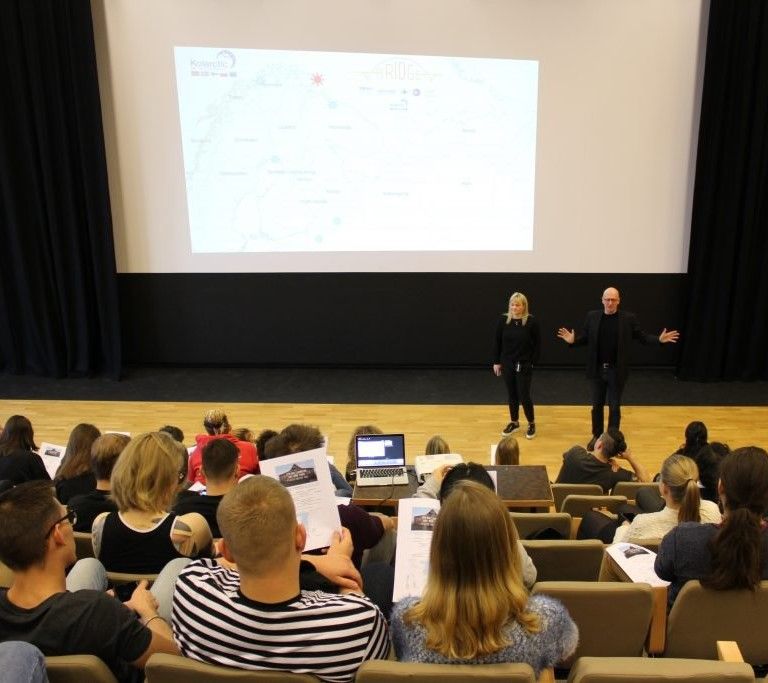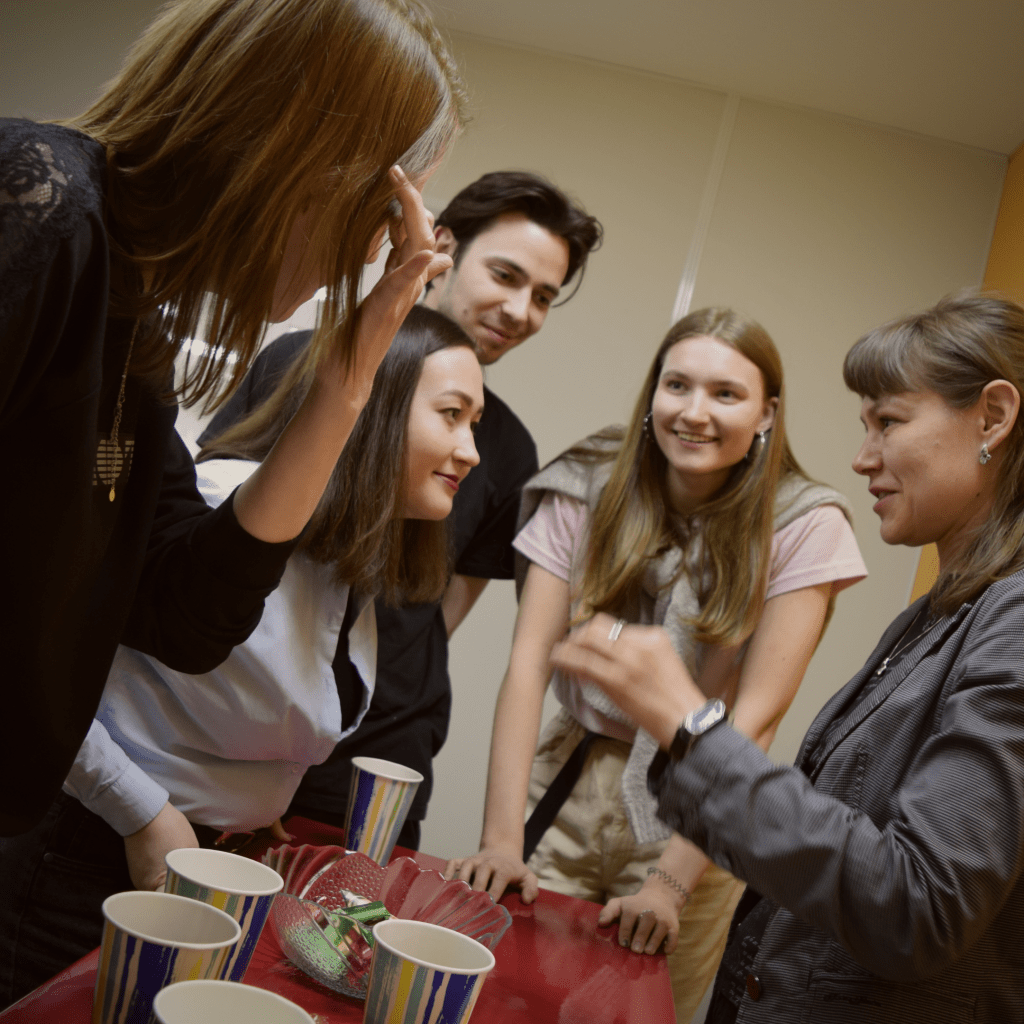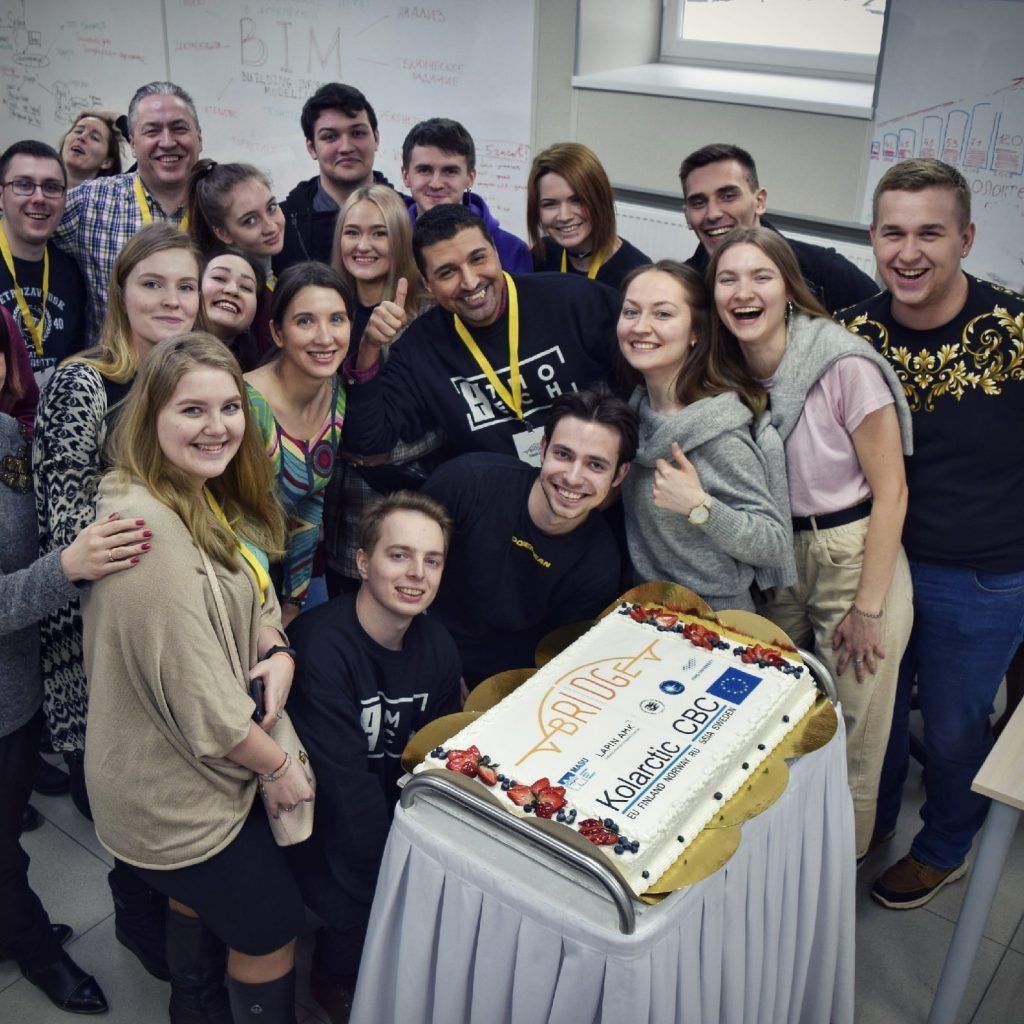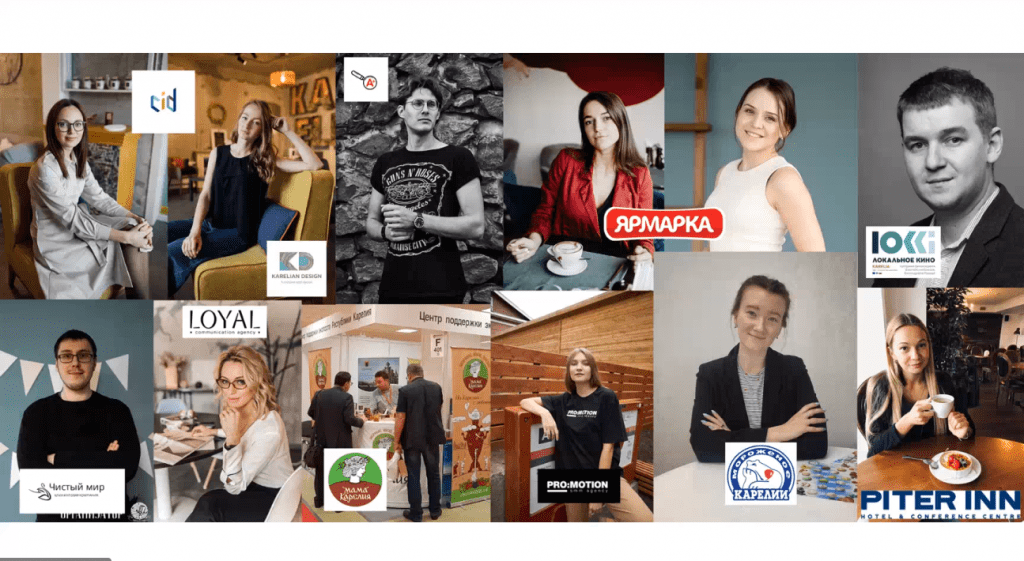Bridging the gap between students and businesses
What can university students do to contribute to your business development? This is what Peter Fischer, BRIDGE project manager, asked companies and small businesses in the neighbourhood, and the answer was clear: students can use their knowledge to help us resolve small problems, and we can provide them with real working life experiences. This is how the initiative BRIDGE came up: a cross-border network of five universities where students and businesses cooperate with a two-fold objective. On one hand, increasing the hands-on skills of the university graduates, and on the other, helping small businesses to further develop. BRIDGE is a project funded by Kolarctic CBC programme.
There is a problem common to most universities: their students are very well educated, their knowledge is solid and outstanding, but they lack “real-life” skills and work-life competencies. Usually, internships are the most common way to address this problem and to collaborate between universities and companies; however, they require a lot of resources in terms of time and manpower, so it is not always an option for small enterprises. The Arctic University of Norway, Murmansk State University, Petrozavodsk State University, ITMO University in St Petersburg and Lapland University of Applied Sciences in Finland decided to join forces. Building on previous long-term collaboration between colleagues, they opted to create an educational platform where students, professors and small companies’ owners could meet and learn from each other.
 “Our network involves around 15 professors and administrative staff from the different universities – explains Peter Fischer, BRIDGE project manager – we all brought in our connections with local companies and organised a learning environment where students could work on real business cases”. To do so, each semester, one of the partner universities contacts up to ten companies, interviews them, and comes up with an assignment that students can resolve. These assignments are put in common with the rest of the professors, who can choose those of their interest and recruit a pool of bachelor students, after checking their motivation and capabilities to communicate in English.
“Our network involves around 15 professors and administrative staff from the different universities – explains Peter Fischer, BRIDGE project manager – we all brought in our connections with local companies and organised a learning environment where students could work on real business cases”. To do so, each semester, one of the partner universities contacts up to ten companies, interviews them, and comes up with an assignment that students can resolve. These assignments are put in common with the rest of the professors, who can choose those of their interest and recruit a pool of bachelor students, after checking their motivation and capabilities to communicate in English.
Afterwards, the students are divided into international teams of ten people and they are allocated an assignment, a professor and company representative, or as they call it, a coach and a commissioner. The students assume roles like the leader or the communicator and start working on the specific case-study. “This way, the process from the idea to the execution, is very similar to real-life experiences – continues Fischer – students go through an interview, we “recruit” them and put them together with students and professors from different countries, cultures and backgrounds, to work on real cases and in close contact with the companies”.
In fact, there are intense links – from economic relations to migration flows – between Russia and Norway, and Russia and Finland. Russian students often study in Norway or Finland for a couple of semesters or try to look for a job there. The north of Finland and Norway is made of small communities, while in Russia, the city of Murmansk amounts to half a million citizens. Therefore, it is very common for Norwegian and Finnish enterprises to, no matter their size, do business across borders with their Russian neighbours. This being so, it was important for the project beneficiaries to compose their teams internationally to create a sort of simulation of what happens in real business.
Once the students receive an assignment, they have between six and eight weeks to resolve the task, working together on an online platform, where they meet, share documents, organise meetings, contact the case commissioner and try to resolve the assignment. According to Mr Fischer, online communication is in the DNA of the BRIDGE project, however, it was important for the students to meet their commissioners and teammates face to face before starting the cooperation. Therefore, the idea was to organise meetings each semester in one of the countries with all the teams, including the teachers and the companies’ commissioners. Because of the pandemic, they could meet in person only twice, but it was worth several.
“We met in the most north-eastern part of Norway, in Vardø, a small village on an island, with 2,000 inhabitants, that is literally at the end of the world”, says the project manager. For one week, around fifty students, ten teachers and ten commissioners worked closely and learnt from each other. “It was a very intense week and the best is that nobody could escape from it!” When the week was over, the teams kept working remotely on the online platform, sharing their contributions and receiving feedback from the case commissioners and professors.
IT companies, businesses from the tourism field, artists, shipyards, even municipalities: these are only some of the entities that have benefitted from the support of the students. The project intends to support the small companies which do not have as many resources as the big ones for marketing strategies or research plans.
For example, students helped out a Norwegian touristic company to develop a mobile phone application for the international tourists who visited the port to go fishing and did not want to spend three hours filling in forms and signing documents. So students were tasked with coming up with a solution to skip the long registration processes.
 From a practical point of view, six to eight weeks may not be enough for all groups to implement a complete business idea. However, for the students, success is 100% guaranteed. “Even if some of the teams came up with unrealistic solutions, they also learnt when to kill an idea and invest their time on something else. They learnt to stay alert, to reach out for the good opportunities around, and to make use of their network and contacts”, explains Mr. Fischer. “We basically taught them how to adopt an entrepreneurial mindset”. Indeed, while papers and thesis are the basis of education, students should also learn to apply their knowledge to practical matters. “These skills will be the most valuable for their future jobs”, stresses the project manager.
From a practical point of view, six to eight weeks may not be enough for all groups to implement a complete business idea. However, for the students, success is 100% guaranteed. “Even if some of the teams came up with unrealistic solutions, they also learnt when to kill an idea and invest their time on something else. They learnt to stay alert, to reach out for the good opportunities around, and to make use of their network and contacts”, explains Mr. Fischer. “We basically taught them how to adopt an entrepreneurial mindset”. Indeed, while papers and thesis are the basis of education, students should also learn to apply their knowledge to practical matters. “These skills will be the most valuable for their future jobs”, stresses the project manager.
As for the professors involved in the project, they have understood the wide range of opportunities available to cooperate across borders, they have enriched their competencies and they are more aware of what means to be part of a broader network. Being an initiative developed mainly by university professors, the project is grounded at a very different depth: it is not anymore about the individual success or failure when dealing with the businesses, but about creating a learning environment, meeting new people and enlarging your network. Now that the platform is all set up, the goal is to keep it always alive and in parallel to the academic curriculum.
a broader network. Being an initiative developed mainly by university professors, the project is grounded at a very different depth: it is not anymore about the individual success or failure when dealing with the businesses, but about creating a learning environment, meeting new people and enlarging your network. Now that the platform is all set up, the goal is to keep it always alive and in parallel to the academic curriculum.
